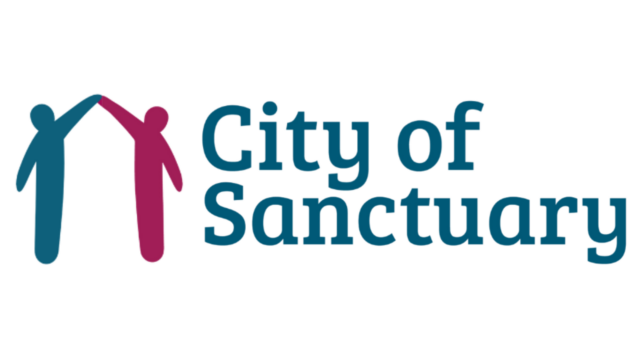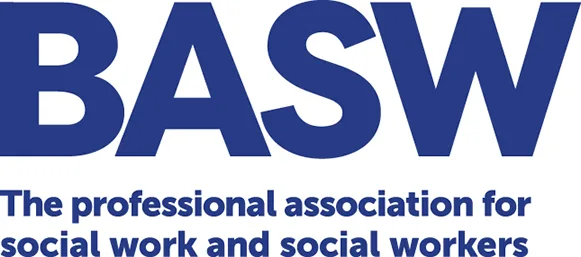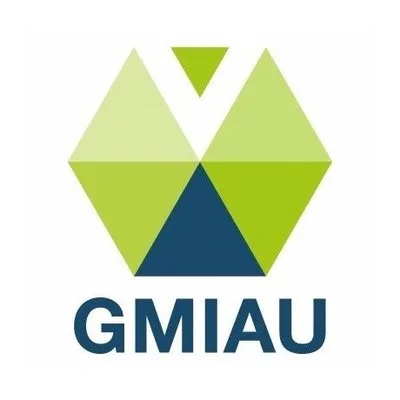October 2023
Introduction
The Illegal Migration Act (IMA) achieved Royal Assent on the 20th of July 2023. Many of the provisions are not yet in force, and we await further guidance and information to understand the full impact of the IMA on people seeking safety, other migrants and local authorities. The Government will need to introduce statutory guidance to operationalise parts of the Act, and now is the time for local authorities to consider the practicalities of enacting it and how they are going to respond to consultations on statutory guidance.
The government has presented the IMA as an instrument that will have little impact on local authorities1, but we consider that it will have a very significant impact on and costs for local authorities and the communities they serve.2
Once the Act is fully implemented, it will allow for migrants who have entered the UK without permission (including children) to be detained3 and require that they are removed from the UK (with limited exceptions). It will make asylum claims inadmissible for most refugees. It will also bar those affected by the Act from ever being granted leave to remain and from certain routes to British citizenship (with limited exceptions). In addition to the moral and legal objections to the Act, there is broad agreement amongst experts that the Act will simply not work due to a number of factors – including the lack of returns agreements with third countries and tensions or conflicts with other law.
The signatories to this statement are charitable organisations that assist migrants and children of migrant backgrounds, including children in need, children in care, and care leavers. Many of our organisations regularly collaborate with and/or provide services for local authorities, such as training and advice on immigration and nationality issues, and delivering commissioned housing and advice services. We are concerned that the Act will lead to a large (and steadily growing) number of people living in limbo in the UK – not being able to return to their countries, not having their asylum claims heard and not being removed to third countries. The Refugee Council has estimated that this could affect as many as 250,000 people in the first three years – including 40-45,000 children.4 The implementation of the Act will likely lead to many thousands of people living in our communities without the opportunity to regularise their immigration status, potentially for many years. They will likely be reliant on minimal support from the Home Office and/or local authorities, and the risk of homelessness, destitution, exploitation and deteriorating health is profound. 5
Impact on Local Authorities
This Act will impact local authorities – in terms of local cohesion, local services, support for people facing homelessness, and impacts of exploitation. In many cases, it may also conflict with LAs’ duty to safeguard and support children in need, children in care, care leavers, and other vulnerable residents. The voluntary sector is also already at capacity and will be unable to meet the additional pressures created through the IMA on their own. It is vital to ensure these needs are properly anticipated and resourced.
Taking the example of local authorities’ duties to children:
- Implementation of the Act will likely increase risks that unaccompanied asylum-seeking children may disengage with local authorities and other professionals and disappear as they approach age 18 and face obligatory removal from the UK. How will LAs comply with their duties to safeguard these children/young adults?
- Children in families may be detained under the Act. How will LAs identify and meet their safeguarding obligations for children who are detained?
- The Home Office may accommodate unaccompanied children under the Act. How will LAs meet their statutory duties (under Section 20 of the Children Act 1989, Section 25 of the Children (Scotland) Act 1995 and/or other legislation) for these children?
- Children seeking asylum may be subject to inappropriate, inadequate, invasive age assessments under the Act. How will LAs meet their statutory duties to safeguard children in this context?
- The Home Office may seek the termination of the looked after status of a child and demand information from local authorities about a child under the Act. How will LAs comply with their duties to safeguard these children and consider their best interests?
- Implementation of the Act will likely increase the number of children who are ‘in need’, where their families are pushed into prolonged destitution and/or homelessness because they are barred from leave to remain or British citizenship. How will LAs address this?
- Local authorities have an obligation to consider the best interests of the child in every decision they make concerning a child. How will LAs challenge the Home Office if the Home Office takes actions the LA considers not to be in the best interests of a child for whom the LA has statutory duties?
We need to act now to challenge the changes brought in by the IMA where these conflict with other laws and to avoid or mitigate the negative impact the Act will have on migrants and local authorities alike. We must act to ensure structures are set up to deal with the potential impact of the IMA on local authorities, to ensure mechanisms are put in place to ensure proper funding for the impact on local authorities, and to ensure frontline staff in local authorities have access to resources, training, and networks to enable them to effectively meet the needs of people affected by the Act.
We are committed to challenging the Act, especially where it conflicts with other laws; creating awareness at local leadership levels to enable practical measures to be put in place and resources allocated; and to collaborating with local authorities to create shared resources for frontline staff. We want to help local authorities to understand the points at which this Act conflicts with existing duties and to bring local authorities together to draw lessons from experiences across the country – through established networks such as LGA, GLA, SMPs, City of Sanctuary or Migrants Champions Networks. Ultimately, coordinated opposition by local authorities to some of the provisions in the Act may play a role in preventing these clauses coming into force and negatively impacting local residents and communities as well as local authorities.
We fear that if we do nothing the provisions in this Act will have serious ramifications for people seeking protection, other migrants, and local communities. The Act is likely to have a very real and concrete negative impact on local authorities through the effect on schools, hospitals, community services etc – but these likely will not be acknowledged by central government or recorded or funded in a meaningful way. Provisions such as those set out in the Act will undermine integration, encourage disengagement, lead to disempowerment, increase isolation, undermine community cohesion and leave some residents at extreme risk of exploitation and abuse. Ample evidence has demonstrated the devastating effect this has on communities, including children who may grow up feeling disenfranchised, not equal to their peers, not part of the community; the long-term effects on the health and wellbeing of children and the wider community6 should be well known to local authorities. Let us not repeat the mistakes of the past but ensure that we bring with us all residents to ensure healthy, vibrant and inclusive communities.
What can local authorities do to challenge, prepare for, and mitigate the impact of the Act on local authorities and residents?
- Make a public stand to oppose the Illegal Migration Act (especially provisions which conflict with other laws and/or statutory duties), and urge the Government to repeal it.
- Learn about the impact of the Act and raise awareness amongst your staff, local councillors, and others, including through investigating and publishing information about the impact of the Act.
- Seek legal advice and where feasible bring legal challenges to the Act, particularly those provisions which are at odds with the Children’s Act 1989 (England), the Children (Scotland) Act 1995 (and similar legislation in other regions of the UK) or other laws.
- Oppose any plans to establish asylum reception centres or immigration detention centres in their local area and advocate for people to be housed safely as an integral part of local communities.
- Work in close partnership with local voluntary sector organisations and community groups that assist people affected by the Act.
- Join networks to access and share information and support, such as the Migrant Champions Network, NRPF Network, and City of Sanctuary local authority network.
- Collaborate and share information about best practices and supportive approaches for people affected by the Act.
- Start preparing front line staff for the impact of the Act by contributing to and utilising tools and guides prepared by civil society.
- Start preparing local communities and renew emphasis on building relationships of trust with local minority/migrant communities.
- Start making provisions for putting in place robust firewalls around services to enable engagement from those who require support but are not yet known to the Home Office.
- Commit to carrying-out safeguarding reviews where implementation of the Act may increase risk of harm.
- Robustly respond to forthcoming consultations on statutory guidance relating to the Act.
- Consider models of LA funding for immigration legal advice to increase advice capacity in their local area.
- Explore possible avenues to unlock access to accommodation for people with undetermined or restricted eligibility, up to the limits of the law, including through partnerships with the voluntary and faith sectors.7
This statement was drafted collaboratively and is endorsed by the following organisations. If you would like to endorse the statement and add your organisation’s logo, or if you have any questions, please contact Cynthia Orchard for KIND UK at cynthia.orchard@centralenglandlc.org.uk.
- Impact Assessment – Illegal Migration Bill, Home Office, 26 June, 2023, p39. ↩︎
- We are not aware of any detailed assessments of the Act’s financial costs for local authorities, but for an analysis of flaws in the Government’s Economic Impact Assessment, see eg: Why the government’s economic Impact Assessment of the Illegal Migration Act tells us little about the Act’s economic impact, University of Oxford Migration Observatory, 26 July 2023. ↩︎
- This relates to children in families. For an analysis of the harms of detaining children in previous years, see eg: The Children’s Society What have I done? The experiences of children and families in UK immigration detention: Lessons to learn | Save the Children’s Resource Centre. ↩︎
- Illegal Migration Bill – Assessment of impact of inadmissibility, removals, detention, accommodation and safe routes, Refugee Council, 2023. ↩︎
- Illegal migration Bill: intention, risks, and how to prepare, NPRF Network, 20 July, 2023; Illegal Migration Bill – Assessment of impact of inadmissibility, removals, detention, accommodation and safe routes, Refugee Council, 2023; L. Taylor New UK law will make migrants shun healthcare, charities say Context.news, 25 May, 2023, ↩︎
- See e.g. Sigona, N., & Hughes, V. (2012). No way out, no way in. Irregular Migrant Children and Families in the UK. COMPAS, University of Oxford: & Thomas, S., Jolly, A., & Goodson, L. (2020). “It was like they cut off all my dreams”: Emotional health and wellbeing of undocumented children in London. ↩︎
- See Unlocking the door: A roadmap for supporting non-UK nationals facing homelessness in England | Homeless Link; and New report | Refused? Experiences following a negative asylum decision – NACCOM. ↩︎























